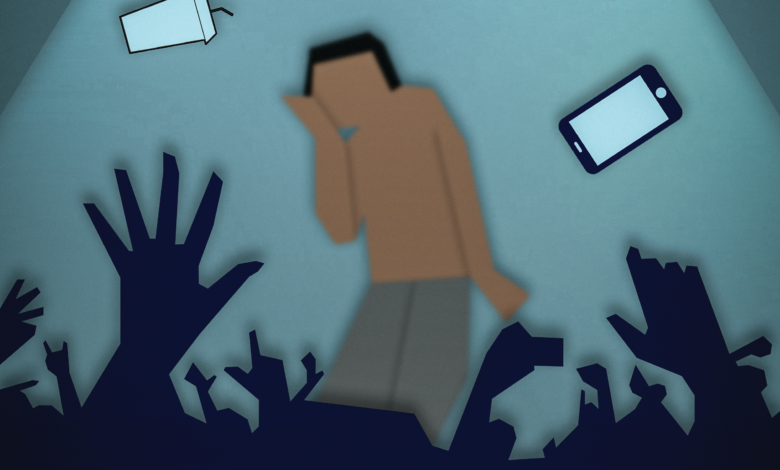
Why has concert etiquette disappeared?
By Felicia Roehm
One of the great things about being so close to New York City is being able to see Broadway shows, performances and concerts without having to travel too far. The arts are all around us and they are full of creativity and fun; however, when at a concert it is important to remember to be respectful of the performer, yourself and others. Over the summer, performers were being hit on stage from fans throwing various items such as phones, bracelets and even chicken nuggets.
On June 18, Bebe Rexha, was hit with a phone near her eye while performing in New York causing her to be hospitalized. A man from New Jersey was later charged with assault. Drake was also hit by a phone on his arm while performing in Chicago on July 5. On June 28, Kelsea Ballerini had to stop singing while performing in Idaho when she was hit in the eye by a bracelet. Harry Styles had a chicken nugget tossed at him while performing at Madison Square Garden on August 27. Singers having items thrown at them is risking their safety. At many concerts singers encourage interaction with their fans, but can it go too far?
Nick Barbati, the assistant vice president of student affairs at Rider, believes that although there is a connection between the performer and the fans, there is still an expectation of respect. Barbati created “R Factor” 12 years ago and has been a judge for the entirety of the annual show. “R Factor” includes a lot of audience interaction, however, that can also cause some frustration.
“The audition round of the ‘R Factor’ lends itself well to audience interaction, but it got to the point when we were at the finals we actually had to repeatedly ask the audience to not shout out during performances and also to keep the energy positive, because that’s just the nature of the show,” said Barbati. “It’s supposed to be uplifting and also allow the performers to not be interrupted.”
Barbati shared that 10 years ago there was a performer at “R Factor” that was just getting ready to sing and someone from the audience yelled out at them causing the performer to forget the words.
“This is someone who really should have done well all things considered and was completely thrown off. And that sticks out to me ten years later because it was so memorable for the wrong reasons,” said Barbati.
He is also one of the chaperones when students go to Broadway and he explains that often this is the first time these students are seeing a performance. Broadway is different from a concert because there is an expectation that the audience will sit, watch and listen whereas in a concert there is usually more noise and conversation. Barbati recalled a time he took students to see “The Lion King” and some students took their phones out in the middle of the performance.
“It was mortifying in the moment for me as the chaperone as everyone’s looking around at you. Many times, [it is] the students’ very first time seeing a Broadway show and they just didn’t know,” said Barbati. He explains that students are used to always having their phones out to capture a moment that now a disclaimer might have to be implemented so students know about show etiquette.
Barbati recently went to a Madonna concert at Madison Square Garden and had floor seats, but the woman sitting in front of him stood on her chair for the entire concert covering his view. The man sitting next him politely asked her to get off her seat so those behind her could see the show but the woman ignored him.
“I was in an awkward position multiple times asking the security guard to come and take her down. Then it creates such an uncomfortable environment for you as an audience member. You can never fully ease into the show once etiquettes been breached,” said Barbati.
He explains that concert performers are also very vulnerable when on stage and are performing in front of thousands of people. They are more likely to hear negative comments said about them while performing and have items thrown on stage.
“Over the years that invisible barrier that exists between the audience and the performer has disappeared. Now to me, that throw of the items is like a symbolic breach of the relationship between artists and audience,” said Barbati. “It’s just horrible we went from throwing flowers at people to throwing phones.”
Moving forward, Barbati shares that security must be very present and some performers have stopped performing to help take control of the crowds, alongside implementing rules to prevent harmful incidents from happening again.
“It’s up to venues to announce what etiquette is expected and then enforcing it,” said Barbati.
At a concert, remember to stay in your own space, don’t block anyone, take care of your belongings and don’t throw anything on the stage.



